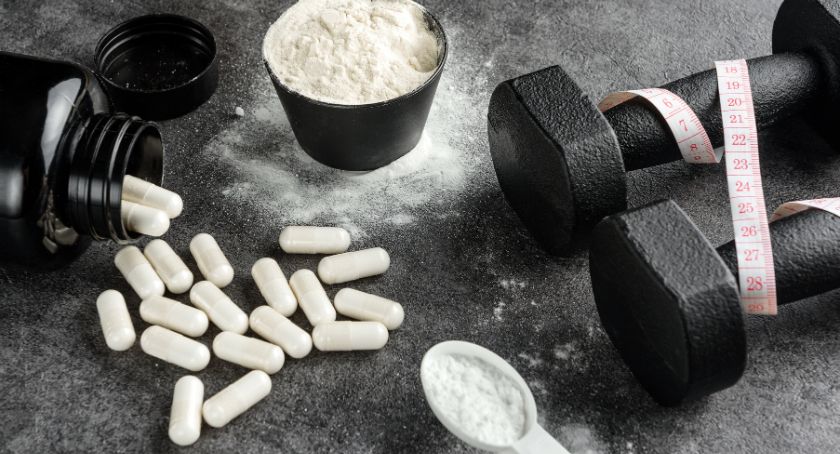Features
State of the Industry: Positive Market Outlook Despite COVID-19 Turmoil
Third annual survey reveals gains for businesses as consumers focus on health and wellness, but supply chain disruptions cause concern.

By: Sean Moloughney

The novel coronavirus pandemic has devastated lives and livelihoods around the world. The worst public health crisis in a century has brought many issues into focus, including the value of prevention and the importance of preparedness.
At the start of the pandemic in the U.S. consumers scrambled to stock up on staples, including dietary supplements. For example, according to IRI data for the year ending Mar. 22, dollar sales of immunity products jumped about 200% in the U.S.
The surge in sales, coupled with supply chain disruptions for everything from PPE (personal protective equipment) to vitamin C, led to stock shortages and order backlogs. On the fringes, outlandish and illegal health claims threatened industry credibility, while price gauging on platforms like Amazon cheated consumers who were desperate to protect their families. In an election year like no other, uncertainty and unpredictability became normalized.
Survey 3.0
To take the temperature of the nutraceuticals industry, and better understand critical issues affecting business today, we at Nutraceuticals World conducted our 3rd annual audience survey in October and November 2020. We received responses from 147 qualified industry members working at companies that either manufacture, market, or distribute finished nutraceutical products (such as dietary supplements, functional foods, or nutritional beverages), supply raw materials, or provide services directly related to these markets and products. The charts and graphics on the following pages depict results.
While COVID-19 has certainly presented unique challenges (to put it mildly), particularly within supply chains, companies are confident overall about the future of the nutraceuticals industry. In fact, two-thirds of survey respondents said they are more confident about the state of the industry now compared to this time last year.
About a third of people that completed this survey work with small businesses with less than 25 employees (37%), while another 24% work with large firms that employ more than 200 (Figure 1). More than two-thirds market dietary supplements (70%), and nearly half supply nutritional ingredients (44%) (Figure 2).
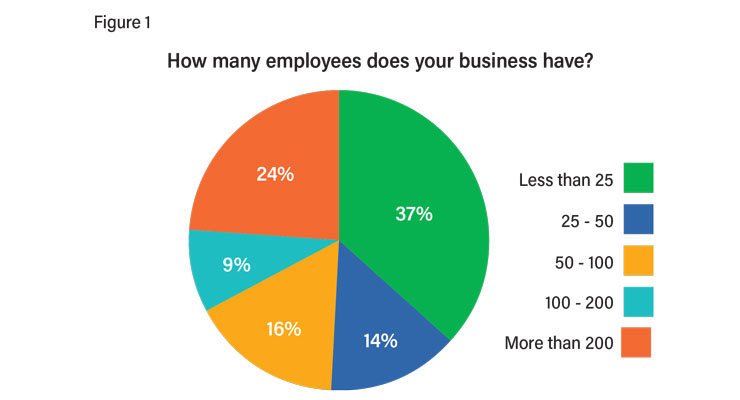
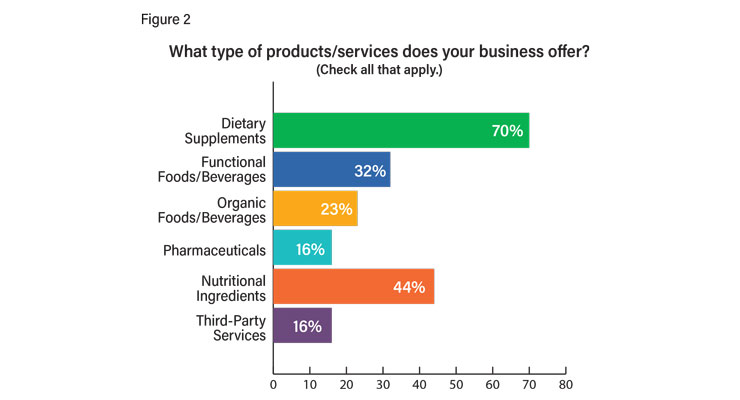
Confidence & Concerns
Confidence in the future of the nutraceuticals industry remains overwhelmingly high, holding steady for the third straight year; 86% of respondents said they are “very” confident in the future (Figure 3). Additionally, 67% said they are more confident about the industry now compared to the same time last year; 11% were less confident; and 22% said their confidence remained unchanged (Figure 4).
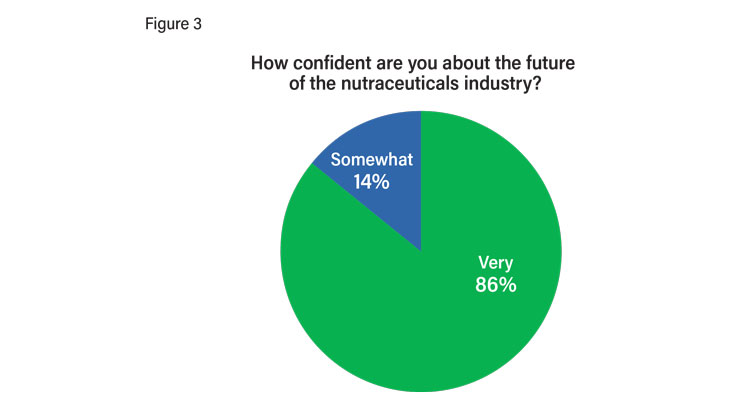
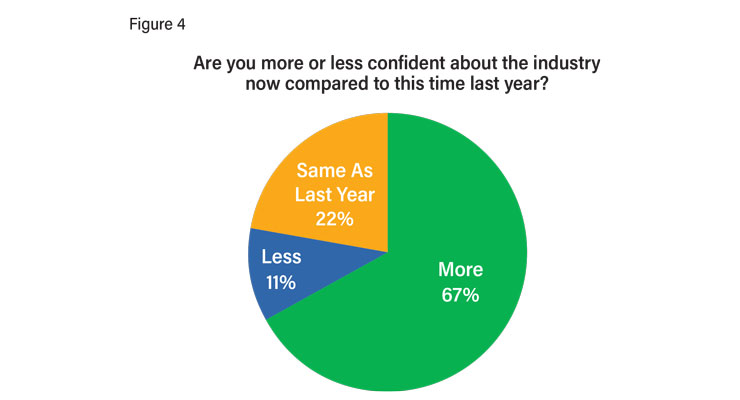
In terms of how COVID-19 has affected bottom lines, 45% said business is up, 21% said business is flat, and 11% said business is down; 21% reported a spike in business during the spring as COVID-19 emerged in the U.S. (Figure 5). As for supply chains, 16% reported disruptions that have since been corrected, while another 24% said they still have issues in their supply chains today (Figure 5). In fact, supply chain disruptions were the number one concern among respondents (67%).
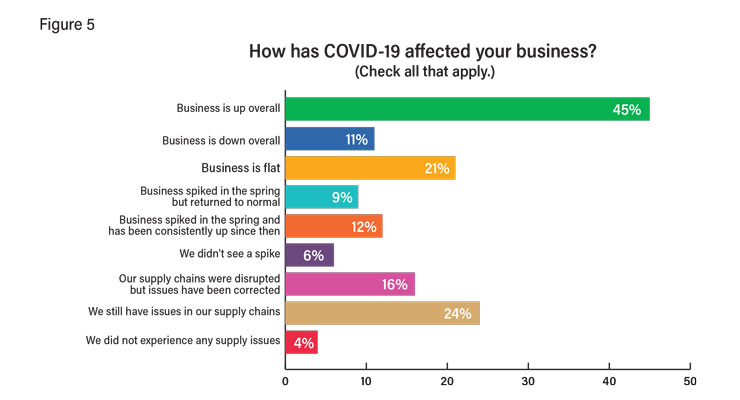
Overall, 69% said they feel their business has adapted well to the disruption caused by the pandemic; 16% said they haven’t had to change much in their business; but another 12% are struggling to adapt (Figure 6).
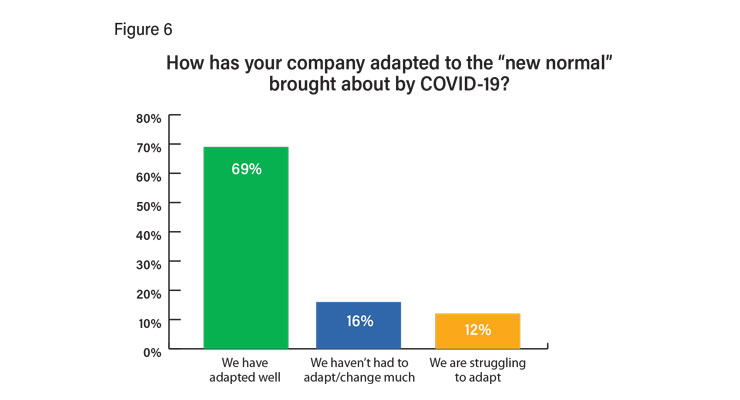
As for the most pressing concerns, following supply chain issues (67%), travel restrictions (46%), COVID-19 (37%), regulations (24%), the 2020 election (24%), trade issues (23%), and quality issues (19%) were top of mind for respondents (Figure 7).
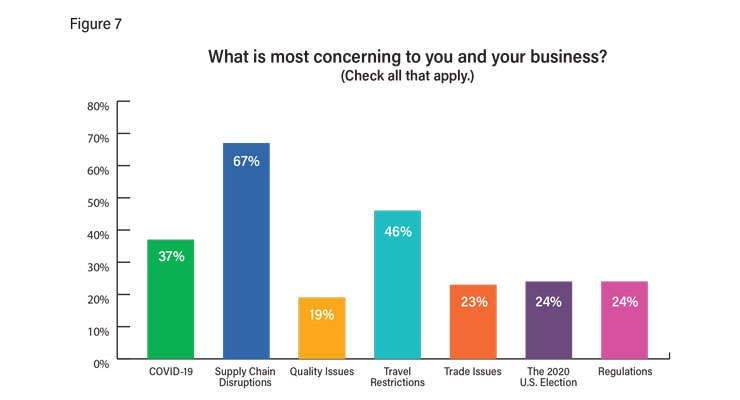
Expectations & Initiatives
Asked to rank markets they think will see the most success over the next 5-10 years, immune health was the clear winner (36%), followed by CBD/hemp (22%), personalized nutrition (20%), and healthy aging (15%) (Figure 8).
In terms of innovations or efforts companies have implemented or are interested in incorporating into their business, clinical research led the way with 46% (but this number was down from 58% last year), followed by supply chain adaptations (45%), telecommunication upgrades (41%), enhanced cleaning procedures (39%), increased transparency (33%), third-party testing/analysis (33%), and delivery/dosage technologies (24%) (Figure 9).
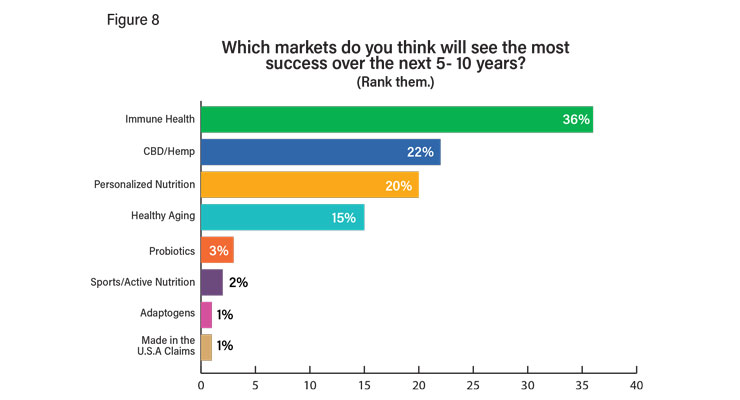
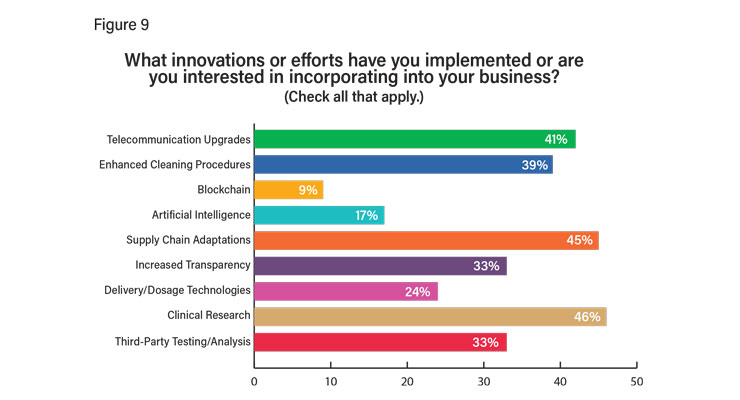
Unique Insights
Prompted to offer their own thoughts about the state of the nutraceuticals industry, responses reflected that industry is in a unique position to help consumers focused on staying healthy during the pandemic.
As one person noted, “The nutraceuticals market is poised for growth. The coronavirus has forced Americans to examine their health and nutrition needs even more closely, and look for ways to strengthen their immunity.”
Another wrote: “As health and wellness continues to become more important, customers are increasingly looking to our industry to offer solutions. The industry will continue to grow and innovate, but it will be very important that companies focus on pharmacovigilance, quality, and ethical production measures to ensure customer trust for all.”
Concern about safety, quality, and claims was a notable theme in responses. As one person wrote: “Safety is paramount. In general, the quality of clinical studies, and any toxicology studies, is poor. In addition, the attentiveness to domestic and international regulations is weak. Too many make ‘drug’ claims, which trigger warning letters from the FDA.”
Another respondent said that even if business is up, there are still many pressing issues. “I think the nutraceutical industry is booming as a result of COVID-19 and the business is up overall. However, along with that come some concerns and problems with supply chain disruptions and adulteration/quality of in demand ingredients like Elderberry.”
Another response noted the rapid transition to e-commerce, away from brick and mortar retail, as consumers have opted or otherwise been compelled to buy online instead of venturing to stores.
Finally, the economic toll the pandemic has taken on certain people cannot be forgotten. As one person stated, “I think many people are struggling with just the basics, so not a lot of extra money for supplements. However, I think there is also a group of people who still have extra income that are looking for new ways to get and stay healthy, especially regarding immunity and natural alternatives.”






